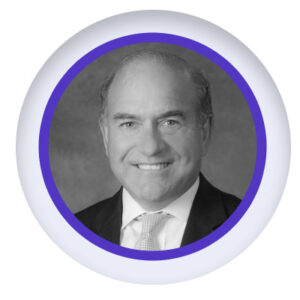
Bridging Health Disparities: Recuro’s Impact on American Heart Health & Black History Month
February is a month dedicated to both American Heart Month and Black History Month, providing an opportunity to shed light on health disparities affecting African Americans. Recuro Health’s innovative virtual solutions are playing a pivotal role in bridging gaps in care, particularly for those at a higher risk of heart disease, poor heart health, and other chronic conditions. This blog explores the importance of virtual screenings, ongoing condition management, and health risk assessments through Recuro Primary Physicians, addressing key health concerns among African Americans.
Understanding the Disparities
According to the Office of Minority Health, African Americans face elevated risks for various health issues, including poor heart health, compared to Caucasian Americans. [1] The Centers for Disease Control and Prevention (CDC) notes that young African Americans are living with diseases typically associated with older ages for other races. Key disparities include higher rates of high blood pressure, diabetes, stroke, and other chronic conditions.[2]
- High blood pressure is common in 12% vs. 10% of blacks vs. whites aged 18-34 years, respectively. It is common in 33% vs. 22% of those aged 35-49 years, respectively.
- Diabetes is common in 10% of blacks aged 35-49 compared to 6% of whites.
- Stroke is present in 0.7% of blacks aged 18-34 compared to 0.4% of whites the same age. Stroke is common in 2% of African Americans compared to 1% of whites aged 35-49 and 7% vs. 4%, respectively, in those aged 50-64.
- In 2019, African Americans were 30 percent more likely to die from heart disease than non-Hispanic whites.
- Although African American adults are 30 percent more likely to have high blood pressure, they are less likely than non-Hispanic whites to have their blood pressure under control.
- African American women are nearly 50 percent more likely to have high blood pressure as compared to non-Hispanic white women.
Social Factors and Mental Health Disparities
The CDC identifies social factors such as unemployment, poverty, and limited access to medical care as contributors to health disparities among African Americans. A white paper from Cigna highlights mental health disparities, with African Americans being 20% more likely to report psychological distress. [3]
Recuro Health’s virtual solutions aim to address these challenges by providing accessible and inclusive healthcare options that coordinate care between a dedicated primary care physician and our behavioral health clinicians. Recuro’s comprehensive behavioral health care offers a wide spectrum of coverage, including therapy and counseling to psychiatry and medication management. Our solution gives members virtual access to connect with a Psychiatrist or Licensed Counselor through secure and private online video and phone sessions whenever and wherever they need it in all 50 states.
Cancer Disparities and Progress
The American Cancer Society points out that African Americans have the highest death rate and shortest survival for most cancers. However, the overall cancer death rate has dropped faster in African Americans since 1990, with significant progress in specific cancer types. [4] Recuro Health’s ongoing health monitoring and personalized care are well-suited to contribute to this positive trend.
At Recuro Health, we’re building a future where physicians can more efficiently diagnose conditions, and patients have better access to easily understand their results. With Recuro’s various diagnostic tests available, we can detect certain types of cancer and precancerous growths early. Our tests empower providers and patients to take proactive steps toward treatment, potentially saving lives and improving outcomes. Preventative care is a cornerstone of long-term health – potentially extending patient’s lives. This includes regular healthcare screenings, lab tests, check-ups, and guided care aimed at averting the onset of illnesses, diseases, and other health-related issues. These services can also identify problems at an early stage when treatment is most likely to be effective and less costly.
American Heart Health Month
Health disparities among African Americans, particularly concerning heart disease, underscore a concerning and persistent issue within the healthcare landscape. Numerous factors contribute to the elevated risk faced by this community, including a higher prevalence of hypertension, diabetes, and socioeconomic challenges. African Americans experience a disproportionate burden of cardiovascular diseases, leading to increased mortality rates. Social determinants such as limited access to quality healthcare, higher rates of unemployment, and lower socioeconomic status contribute to the disparities. [5]
Additionally, cultural factors, genetic predispositions, and lifestyle choices play roles in shaping the health outcomes of African Americans concerning heart disease. Addressing these disparities requires a multifaceted approach that includes improving healthcare accessibility, promoting health education, and addressing the social and economic determinants that contribute to the disproportionate impact of heart disease on the African American community.
Access to quality healthcare is paramount for all Americans, regardless of race. That’s why this February, American Heart Health Month, is a critical time to focus on cardiovascular well-being. Recuro Virtual Primary Care offers a comprehensive approach to support patients in achieving and maintaining heart health. Below, we have outlined eight steps to showcase how Recuro’s virtual platform can assist individuals during this important month. Recuro Virtual Primary Care empowers individuals to take proactive steps towards better heart health by leveraging virtual consultations, personalized plans, continuous monitoring, and expert support:
- Initial Virtual Heart Health Assessment:
- Schedule a virtual consultation with a Recuro Primary Physician to conduct an initial heart health assessment.
- Discuss family history, lifestyle factors, and any existing cardiovascular conditions.
- Personalized Heart Health Plans:
- Receive a personalized heart health plan tailored to individual risk factors and health goals.
- The plan may include lifestyle modifications, dietary recommendations, and exercise routines.
- Continuous Monitoring and Remote Screenings:
- Utilize Recuro’s remote monitoring capabilities to track vital signs, such as blood pressure and heart rate.
- Conduct virtual screenings to monitor cardiovascular health indicators and identify potential issues early.
- Virtual Consultations & Cardiologist Referrals:
- Schedule a virtual consultation with your virtual primary care doctor to address any heart health concerns.
- Obtain expert advice and recommendations for managing cardiovascular conditions.
- When necessary, a specialist referral to a cardiologist can be coordinated through your primary physician.
- Medication Management and Adherence:
- Access virtual medication management support to ensure adherence to prescribed medications.
- Receive reminders and guidance on medication regimens to optimize heart health.
- Lifestyle Modification Support:
- Engage with wellness coaches and nutritionists virtually for guidance on heart-healthy lifestyle modifications.
- Explore personalized exercise plans and dietary recommendations to promote cardiovascular well-being.
- Health Education Resources:
- Access a wealth of educational resources on heart health, risk factors, and preventive measures.
- Stay informed about the latest advancements in cardiovascular care through patient engagement materials.
- Ongoing Follow-ups and Monitoring:
- Schedule regular follow-up virtual appointments with Recuro Primary Physicians for continuous monitoring.
- Adjust and refine the heart health plan based on progress and any changing health conditions.
Recuro Health’s Role in Mitigating Disparities
Recuro Health aligns with recommendations from the American College of Physicians to strengthen health literacy among racial and ethnic minorities. As we commemorate American Heart Month and Black History Month, it is essential to recognize the persistent health disparities affecting African Americans. Recuro Health’s virtual solutions emerge as a beacon of hope, providing accessible and comprehensive healthcare options to bridge gaps in care. By focusing on virtual screenings, ongoing condition management, and health risk assessments through Recuro Primary Physicians, we can collectively strive toward a more equitable healthcare landscape for all.
Looking to book an appointment with one of our health care providers? Get started by logging in to our member web portal or by downloading our Recuro Care app. Get started on a better health journey this year with Recuro Health!
You must first download the Recuro Care App, before booking an appointment.
*Plan configuration & services available may vary. Reach out to your plan administrator or Recuro Health’s Customer Service for a comprehensive list of your covered services at 855-6RECURO (855-673-2876).
Sources:









